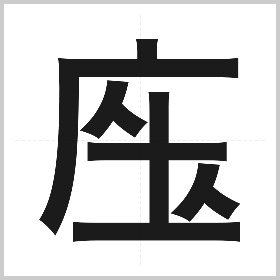Native: English, Russian. Learning: French C1, Spanish C1, Chinese C1, Japanese B1
Last active 2 hours ago
Don't wanna be here? Send us removal request.
Text
Alright, sound off! WHO is learning Classical Chinese?
I want to find friends to study with and complain to!!!
I have gotten back into it in a more serious capacity after a few years of nonsense, and am continuing (sigh) to work my way through Introduction to Literary Chinese by Michael A. Fuller.
Please reblog for greater sample size! Beginners or 古文大师 all please reply!
I know some people in HK, Singapore, Malaysia, Taiwan, China, greater Sinosphere/diaspora might be also doing it or have done it as a school subject, and I'd love to hear from you guys too :D
24 notes
·
View notes
Text
62 notes
·
View notes
Text
水道管
すいどうかん
water pipe
寒さで水道管が凍るかもしれません。 さむさ で すいどうかん が こおる かも しれません。 Water pipes may freeze due to the cold weather.

14 notes
·
View notes
Text
sometimes you just want to look at the qing dynasty jadeite cabbage again
40K notes
·
View notes
Text


Today, something very different! Because I just re-watched The Shining (and Doctor Sleep, for good measure), I thought you should know that Jack Torrance's iconic line, "Here's Johnny!" was translated as "お客様だよ!"
You could back-translate it as "A customer is here," or "The guest has arrived," or maybe even"You've got company" (though that tends to have a different connotation in movie dialogue). Since "Here's Johnny!" was a cultural reference and that couldn't be translated directly anyway, you really have carte blanche, I guess.
客 means customer, client, visitor, or guest. It can be used both in the hospitality industry sense and in the sense of having a guest or visitor at your house. It's read キャク or カク.
様 is used here as a polite or honorific suffix (-さま). It can also mean way, manner (of), or situation. It's usually read さま or ヨウ, but in rare cases might be さん or ショウ.
Putting it together, お客様 【お きゃく さま】 means customer, visitor, or guest. There's also お客さん 【おきゃくさん】, which is a step down in politeness.
Also, on the subject of iconic lines and catchphrases, I saw a subbed episode of Friends a while back, and when Janice said "Oh. My. God," it was translated as "ヤダ!マジ?ウソ~" (roughly, "No way! Seriously? You're kidding!" but very juvenile and girly). Great work, whoever translated that.
182 notes
·
View notes
Text

Im a sane linguist I can be trusted with grant money to visit maid cafes
3K notes
·
View notes
Text
tip for improving japanese reading speed!


how about you try some カラオケ???
i've been doing this for a couple years now and i think this has single-handedly made my reading speed in japanese improve to the point of almost being as fast as it is in english (although i still struggle with kanji and katakana sometimes x_x)
to find one, i usually just search on youtube (song name) followed by either カラオケ or ニコカラ. if nobody has made a karaoke for your song of choice, then i'd otherwise search up (song name) followed by 歌詞 (kashi/lyrics) and you'll usually find them that way. i like to use the site utaten.com because they all feature furigana! be a little careful though because while its only happened to me a couple of times, there's been times where the furigana is wrong for one or two words.
i think this is a really fun way to practice especially if you love singing, like i do!! i've never seen anyone else recommend this so i hope this helps
365 notes
·
View notes
Text
雪崩
なだれ
avalanche
気象庁や国土交通省は、鉄道や道路への影響、強い風や高い波などのほか、山で雪が崩れる雪崩にも気をつけてほしいと言っています。
きしょうちょう や こくどこうつうしょう は、てつどう や どうろ へ の えいきょう、つよい かぜ や たかい なみ など の ほか、やま で ゆき が くずれる なだれ にも き を つけて ほしい と いって います。
The Japan Meteorological Agency and the Ministry of Land, Infrastructure, Transport and Tourism are asking people to be careful not only about the impact on railways and roads, strong winds and high waves, but also about avalanches caused by falling snow in the mountains.

20 notes
·
View notes
Text
Seitokai's February Japanese Book Club
This month we're reading ペンギン・ハイウェイ by Morimi Tomihiko

A fourth grade boy who takes notes about everything in his daily life in a Japanese suburb is suddenly thrown into a mystery when penguins suddenly appear one day in his hometown. Winner of the 31st Japan Science Fiction Grand Prize.
Join us for this read in Seitokai's Discord!
Feel free to message me or @onigiriforears for information!
62 notes
·
View notes
Text
Seitokai's February Manga Book Club
This month we're reading SPY×FAMILY 1

The popular manga that is also an anime. The master spy codenamed 「Twilight」 has spent his days on undercover missions, all for the dream of a better world. But one day, he receives a particularly difficult new order from command. For his mission, he must form a temporary family and start a new life?! A Spy/Action/Comedy about a one-of-a-kind family!
Join us for this read in Seitokai's Discord!
Feel free to message me or @onigiriforears for information!
9 notes
·
View notes
Text




















Li Ziqi for Harper's Bazaar China - January 2025
143 notes
·
View notes
Text
As I deepen my study with Chinese, the more I'm struck by how word meanings work. The monolingual USAdians I know or encounter online, who studied only as much as needed to get through school, really do seem to think languages are plug and play: know the word in both languages, and swap.
But that couldn't be further from the truth. There's on Chinese word, 稳当 (wĕn dang), that's really struck me for that. Because my flashcards give three translations for 稳当: reliable, secure, and stable. And in English these words are all fairly different! Clearly related but very much do not mean the same thing. How can one Chinese word mean these three different concepts? Well, of course, it doesn't. 稳当 means 稳当, some fusion of those three concepts we have words for in English but not quite any of them, that makes it appropriate to use in places where English would use any of those three. There are surely shades of meaning, and which interpretation of the meaning is most appropriate to a given context will be understood upon reading.
Now, expand this understanding - that a word doesn't mean (exact direct swap in English) but rather the word means the word, and we approximate it to the closest English equivalent we can - to *every single word in every single sentence in an entire book.*
Then translate that book.
Translation is an art, not a science, requiring tremendous verisimilitude in *both* languages, and an understanding of the story, and a deep familiarity with the culture (social, historical, linguistic, etc.) of the original work, and often knowledge of the authors intent (if possible to ascertain), and a range of other skills. Translation will always be interpretive and transformative, because (word in one language) doesn't precisely mean (word in another language). They're not "the same." If I present you a sentence with 稳当 in it, does it mean stable, reliable, or secure? Well that depends. On what? How it's being used, the surrounding context, other factors, and of course... the reader or translators interpretation.
It drives me insane when I see people present alternate translations as some kind of "gotcha" that one translator got things wrong. And don't get me wrong - of course some translations ARE just wrong, obviously if I translate 稳当 to mean "goldfish" I'm not interpreting I'm just incorrect. But beyond obvious mistakes, a world of nuance exists, and different translators can in good faith reach different conclusions on the most appropriate translation. This is WHY famous books not in English get translated repeatedly by different people, and why a reader would want to read multiple translations of the same work - to see, in different translations, some shadow of the wonderful nuance embodied by the original words that do not, and cannot, simply be swapped 1 to 1 for a perfect English translation. And this is *especially* true of a language like Chinese, which is ancient and beautiful and deeply steeped in understandings of Chinese history and literature.
Why do you think I and many others are studying Chinese for years? For me, it's all so I can read the actual books myself and get that much closer to the story, that much closer to my own interpretation. I'll never have the skills of a knowledgeable translator - this isn't my profession, it's my hobby - but I'll gleen things nonetheless and it's important to me to try.
Too many of yall disrespect those skills so much that you'll throw a sentence of a language you know nothing about into Google translate and then declare the translator Wrong (and sometimes Bad and Malicious) based on that.
稳当 means 稳当. It doesn't mean "reliable." It doesn't mean "the exact translation of 稳" plus "the exact translation of 当". It's a Chinese word with a Chinese definition that we retrofit English on to.
And the hardest part? Look, I'm still a Chinese novice. For all I fucking know, 稳当 actually MIGHT have three distinct definitions. Everything I said about it above might be wrong. I don't know enough Chinese yet to know for sure, and that's a level of nuance and understanding I'll only reach by reading more.
Multiply that by *every single word in both the original language and the language it's being translated into.*
That's what translation is.
Good luck.
277 notes
·
View notes
Text
i don’t know why but i’m really amused by the winner of some ‘new kanji’ contest:

compare with the real kanji

座 (seat/gathering), but the two 人 (person) radicals have been moved from next to each other within the 土 (earth) radical to diagonally from each other, making this “social distance(d seating/gathering)”
100K notes
·
View notes





